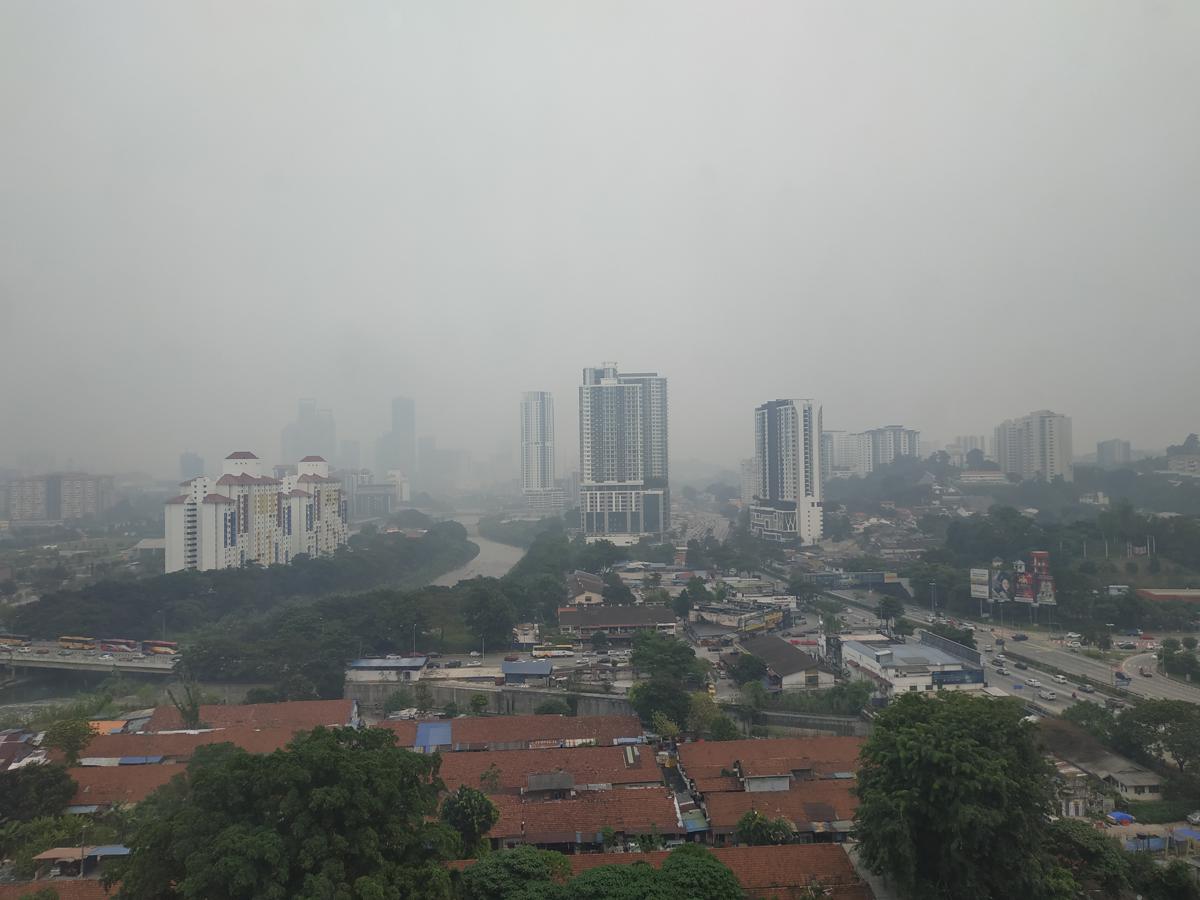KUALA LUMPUR, Sept 16 — A group of Malaysian medical consultants and other professionals urged Putrajaya to file an RM1 lawsuit against the Indonesian government over the recurring haze crisis.
The group of 24 Malaysian medical consultants, lawyers, professors, social activists and economists said fires in Indonesia were causing the cross-border haze that has hit Malaysia and Singapore, despite Indonesia claiming that fires had broken out in other countries.
“This is our proposal: the Federation of Malaysia (with or without the Republic of Singapore and Nation of Brunei) initiates a lawsuit against the Republic of Indonesia at the International Court of Justice for the symbolic value of RM1 and a legally-binding perpetual commitment to prevent future forest fires,” said the group in a statement.
“We propose RM1 for three reasons. One, it’s extremely difficult to calculate the exact damages. Two, any calculation on the actual number will waste crucial political energy and distract from the aim of putting out the fires. Three, asking for billions of ringgit in damages will spark unnecessary tension.
“We acknowledge that this lawsuit could threaten the geopolitical balance in Asean. We want a constructive lawsuit and not an aggressive or punitive posture, further explaining the symbolic figure of RM1. On balance, we believe that a lawsuit that compels a legal responsibility on the Indonesian government is both respectful and morally necessary, for their citizens and for ours,” they added.
The Malaysian group accused Indonesia of breaching its duty to protect the Southeast Asia commons and of causing harm to its own citizens and in Southeast Asia.
They noted that the Asean Agreement on Transboundary Haze Pollution signed in 2002, Malaysia’s National Haze Action Plan, a call to use less palm oil, and bilateral diplomacy have all failed for the past 20 to 25 years to prevent the annual haze crisis.
“We believe that it is possible to be neighbourly and yet assertive of our own rights to health and clean air,” said the group.
“The health of Southeast Asians and Indonesians is under mortal threat by the raging fires in Indonesia. Accountability must be imposed where it is fair.”
The group of 24 behind the statement comprised Dr Khor Swee Kheng, Dr Amar Singh-HSS, Darshan Joshi, Dr Agnes Heng, Dr Agnes Suganthi Thinakaran, Dr Alan Teh, Dr Albert Yong Kui Choon, Alfred Lee, Alvin Ng Lai Oon, Dr Teoh Choong Jean, Devendiran Paramanantham, Edmund Lim Soon Chin, Dr Tan Hui Siu, Mark Lee, Ng Lai Thin, Datin Wong Poai Hong, Dr Rachel Chong Huimin, Satvinder Singh, Dr Chin Saw Sian, Sharan Raj, Datin Dr Lim Swee Im, Dr Lim Ti Bian, Timothy Choy, and Dr Vinod Kumar Joshi.
As at 8am today, five areas in Sarawak, Selangor and Putrajaya showed very unhealthy air quality with Air Pollutant Index (API) readings surpassing 200, while 31 areas throughout Malaysia had unhealthy air quality.
Channel News Asia reported that air quality in Singapore hit unhealthy levels last Saturday for the first time since August 2016.
Indonesian Environment Minister Siti Nurbaya Bakar told Reuters that some of the fires in Indonesia had been found in palm oil plantations owned by at least four Malaysian company subsidiaries — Sime Darby Plantation subsidiary Sime Indo Agro, IOI Corporation unit Sukses Karya Sawit, TDM Berhad subsidiary Rafi Kamajaya Abadi, and Kuala Lumpur Kepong Group unit Adei Plantation and Industry.
The plantations, she said, were sealed off after fires were spotted.
Bernama reported Negri Sembilan executive councillor in charge of health S. Veerapan yesterday as saying that the state health department found a 14.3 per cent increase in respiratory tract infections from week 36 to week 37 of the year, as well as a 3.1 per cent and 1.4 per cent rise in eye infections and asthma respectively.








